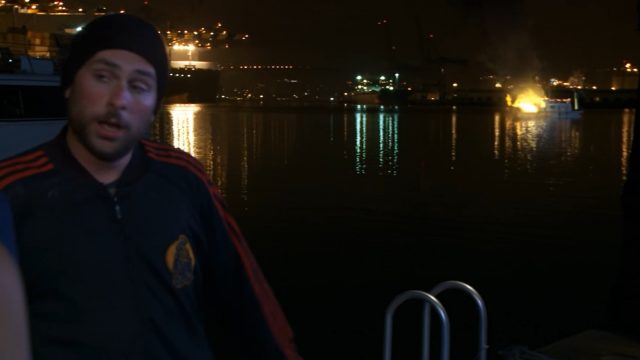I have gone on record as finding it frustrating that “Shut The Door. Have A Seat” is considered the greatest episode of Mad Men. It’s not that I don’t like it – it’s amazing – it’s that it’s not a great example of what the show does on a day-to-day basis, and in fact being an anti-Mad Men episode is its purpose, and how it gets its power. This is not a story where the world is burned down and rebuilt every day; this is the thrill of the rules being broken, of not just crossing the line, but riding over it at top speed on a motorbike, flipping it off while we go by. Watching the entire show for that experience will be very disappointing – indeed, the characters go on to try and recreate that experience, only to find diminishing returns every time. I would certainly not recommend it to a new viewer to sell them on the show. But my point here isn’t to crap on the episode or people who like it, because it raises an interesting question: which episode would I consider something to show a new viewer, one that shows what this show does at its best?
It’s an interesting question to me, because it requires unpacking what the show does on a day-to-day basis, the reason we keep coming back every episode. One of my favourite episodes of Futurama is “The Sting”, because it’s intensely psychological and surreal, and has a sense of Gothic melodrama; I think “Roswell That Ends Well” is a much better representation of the kind of thing you can expect from Futurama – one-liners based on abusing the English language (“But existing is basically all I do!”), absurd situations created from scifi concepts, jokes playing off the specific personalities of these particular idiots. These are all elements present in your average Futurama episode, they just all work here. Similarly, if there’s any episode that shows what It’s Always Sunny In Philadelphia is, it’s “The Gang Buys A Boat”. I like “The Gang Gets Held Hostage”, and it’s a better example of each and every scene being absurd on its own, let alone within the context it’s presented, but that episode is missing the crucial element of the Gang botching a fairly simple premise. Most people could go out and buy a boat; if another sitcom thought of the premise of buying a boat, there’d be some extra absurdity layered in – maybe they bought the boat from a weirdo, maybe they’re entering a race, maybe the boat is haunted. All Always Sunny needs is its characters on a boat; none of the absurdity feels forced because pretty much all of it comes from the characters; the “implications” speech is the most iconic part, but all the characters contribute one link in the chain of disaster.
With all that in mind, I would put “Old Kentucky Home” as a candidate for Mad Men‘s ‘firing on all cylinders’ episode. MM has the effect of a good anecdote told beautifully, and this gives us the double-premise of ‘that time Peggy, Paul, and Smitty had to stay in the office on the weekend and ended up getting high’ intertwined with ‘when everybody had to go to Roger’s daughter’s party’. Good drama reveals character, and good MM reveals character hiding under surface details; Paul’s neediness undermining his attempts to appear intellectual, Peggy discovering another layer to her ambition, Don revealing his genuine awe at his station in life. On top of that, there’s both an intertextuality and intratexuality that comes from comparing and contrasting all these details. For the latter, it’s clear how Paul fails at his goal compared to Peggy; she’s willing to put in the work that he isn’t. As beloved commentor/contributor Conor Malcolm Crockford points out, there’s also a connection to Don, as he and Connie have the life experience that Paul lacks to give their words a poetry and weight that he so desperately craves. Without the episode, there’s connections to the works of John Cheever, and implications of what it means to be American and middle class and poor.
And perhaps most importantly, this is not presented as a dry recitation of facts and insight. It’s not always great for this (although I think it just keeps getting better as it goes along), but “Old Kentucky Home” is a deeply emotional hour of television, covering humour and wonder and triumph and warmth. Paul, in his own way, manages to find a connection to another human being; Peggy has yet another moment of ownage; the famous dance sequence has a whole gamut of emotions, success and failure and embarrassment and grace. Don and Connie’s conversation says what it does about America because there is a genuine sense of awe to it, that an American can cross class lines and have such disparate life experiences. Connecting to emotional to the philosophical in such a breezy fashion is what Mad Men does.
What do your favourite shows do when they work? What are episodes that work despite – or because – they go against the show’s usual grain?

